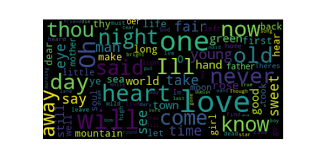[ 1강]_[practice 4]_[EBS_리딩파워_완성]
[ Educational Effects of Poetry Creative Programming ]
❶ A professor had students craft poetry-generating programs.
❷ The children would feed the program verbs, adjectives, and nouns, and the computer would combine them into lines of poetry: “MAD WOLF HATES BECAUSE INSANE WOLF SKIPS” or “UGLY MAN LOVES BECAUSE UGLY DOG HATES.”
❸ The process of trying to get the program to work lent students startling insights into language.
❹ Jenny, a thirteen-year-old girl who had previously earned only mediocre grades, came in one day and announced, “Now I know why we have nouns and verbs.”
❺ She’d been taught grammar and the parts of speech for years without understanding them.
❻ But as Jenny struggled to get the program to work, she realized she had to classify words into categories—all the verbs in one bucket, all the nouns in another—or else the sentences the computer spat out wouldn’t make sense.
❼ Grammar suddenly became deeply meaningful.
❽ This produced another effect: Jenny began getting A’s in her language classes.
[ 시 창작 프로그램 짜기의 교육적 효과 ]
❶ 어느 교수가 학생들에게 시 창작 프로그램을 짜라고 시켰다.
❷ 아이들은 프로그램에 동사, 형용사, 그리고 명사를 입력하고, 컴퓨터는 그것들을, ‘제정신이 아닌 늑대가 뛰니까 미친 늑대가 싫어한다’ 또는 ‘못생긴 개가 미워하니까 못생긴 남자가 사랑한다’ 같은 시구(詩句)로 결합하곤 했다.
❸ 그 프로그램이 작동하게 하려고 애쓰는 과정은 학생들에게 언어에 대한 놀라운 통찰력을 주었다.
❹ 이전에 평범한 성적만 받았던, 13세 소녀 Jenny는 어느 날 와서, “명사와 동사가 왜 있는지 이제 알겠어요.”라고 말했다.
❺ 그녀는 여러 해 동안 문법과 품사 를 이해하지도 못한 채 그것들을 배웠었다.
❻ 그러나 그 프로그램이 작동하게 하려고 애쓸 때 Jenny는 단어를 범주에 따라, 즉 모든 동사는 한 버킷에, 모든 명사는 또 다른 버킷에 분류해야 하고 그렇게 하지 않으면 컴퓨터가 내놓는 문장은 아무런 의미도 갖지 못할 것이라는 것을 깨달았다.
❼ 문법이 갑자기 아주 의미 있게 되었다.
❽ 이것이 다른 효과도 가져왔는데, Jenny는 언어 수업에서 A학점을 받기 시작했다.



verb 동사
adjective 형용사
noun 명사
process 과정
lend (사람·상황에 어떤 특질을) 주다[부여하다]
startling 놀라운
insight 통찰력
previously 이전에
mediocre 평범한
part of speech 품사
classify 분류하다
category 범주
sentence 문장
spit out 내뱉다
illusion 환상, 착각